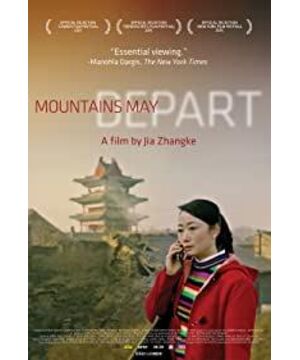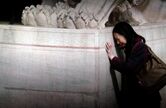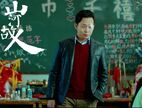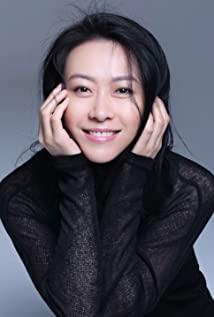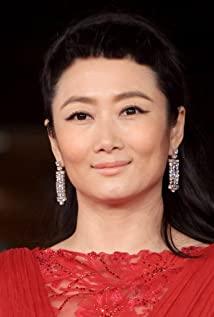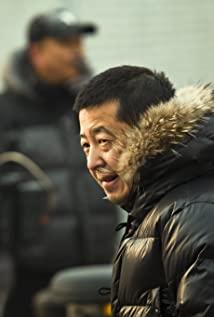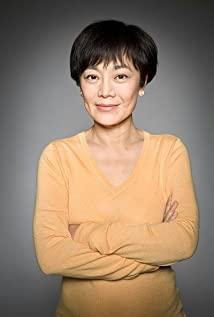The name of the film comes from an old saying, "The mountains and rivers remain the same, but the old people are not there."
As Jia Zhangke , the so-called "sixth generation" of Chinese film directors, the 2015 release of "Mountains and Rivers", to a certain extent, highlights the unique and unruly filmmaking methods of their generation. Their growth began in the 1990s, which coincides with the beginning of the film's story in 1999. In the same way, this year has important symbolic and practical significance for a rising and increasingly powerful China.
Through "Old Man in Mountains and Rivers", Jia Zhangke tells a story about his motherland (China). This duality is perfectly exemplified in the film's opening and closing scenes, where two distinct dance sequences are placed in the same song. At the opening of the film, the protagonist Shen Tao and her friends dance to the "Go West" of the pet shop boy, expressing a youthful and optimistic vision of a seemingly infinitely bright future. In the last scene, she is farther and farther away from her son, husband and hometown, but she dances to the same song alone in the snow, but she is still grateful for everything life has brought her.
"Go West" is a song that satirizes the capitalist world of the West , and its lyrics may be a bit offbeat for a film about China's past, present and future. "I chose this song because of my young memory, my generation was young in 1999," Jia Zhangke said in an interview. "When midnight came, the DJ would play the song and we would start dancing. So when midnight came When I try to evoke memories of the past, and how my body and mind felt during that time, it ties into this song. So I want to evoke not just a personal history, but the collective history of that generation ."
The story takes place in Fenyang, Shanxi, the hometown of director Jia Zhangke, and the story of "Old Man in Mountains and Rivers" takes place in three time periods: 1999, 2014 and 2025.
At the beginning of the film, Shen Tao is caught between two love stories: one is Liang Zi, a poor and honest coal miner, and the other is Zhang Jindong, a pretentious young capitalist who "likes to control others". And while telling her story, Jia charts the complex path China has taken in its national effort to modernize from the top down.
"Mountains and Rivers" is not only striking in its narrative, but also in the way the film is presented: Jia Zhangke shot the entire 1999 story in a 4:3 ratio, the square footage of 90s TV. It gives the film a saturated, nostalgic feel to a time when the sky was still blue, no pollution, no messy buildings, quiet temples in the distance, and a bustling street with a traditional weapon woman crosses. But the surroundings are full of vigor and vitality, modern buildings are under construction, and the money earned by Zhang Jindong's gas station "can be packed in sacks." Then in 2014, the picture became a bigger 16:9 , looking more like a modern blockbuster, indicating that China has changed dramatically over time. However, the blue-green sky in the first part turned into a gray-green smog river bank, which also symbolized the haze surrounding Shen Tao, now divorced, in his "more prosperous and comfortable" life, even though she knew: "One can only accompany oneself. You walk for a while, and sooner or later you will part." By the end of 2025, the screen ratio will become 2.35:1 , and the location will also become Australia. The director uses this to express the passage of time, the progress of technology, the most important thing is the changes of the world and the times, the growth and aging of characters, " The mountains and rivers are still there, when will the deceased return?"
Another crucial point in "The Old Man of Mountains and Rivers" is the disappearance of language or local dialect, and even cultural identity . Jia Zhangke believes that by 2025, people will need to turn on Google Translate at all times in order to communicate with each other. Just like in the second half of the film, Doller, who has lived in Melbourne for more than ten years, shouted to his father Zhang Jindong: "Google Translate is your son." And what about Doller himself? He forgot his native language and even the name of his biological mother, indicating that he has lost his identity with his motherland. He highlights the confusion and helplessness of modern young people, who want to pursue "freedom", but do not know what "freedom" is. Fortunately, with the help of his mentor Mia, he realizes that he needs to go back to China to find his biological mother and his roots.
The movie starts on a happy note and ends on a bittersweet note. "Mountains and Rivers" sometimes stumbles as it conveys the past of a generation, in part because it also undertakes the daunting task of predicting the future. The characters on the show are all looking for some "promised land," whether it's financial success or romantic fulfillment, but over time that goal seems to stay forever on the horizon.
The film provides us with a new window, allowing us to have a close look at China . Even today, China is grappling with the legacy of rapid economic growth. Environmental concerns aside, there are plotlines like Liang Zi's now threatened with lung cancer that speak volumes about the condition of the working class driving China's rapid modernization, while also involving the emotional and personal failures of those around him. But it is still a dynamic country, but in this country, a certain culture is being swallowed up in the name of progress, and in the process of integrating into the world, some characteristics of the Chinese nation itself are fading.
In "Mountains and Rivers", it is nominally about the attraction of the future, and it is true that part of the setting is in the future, but it is actually about those untaken roads left by the past. And Jia Zhangke underscored the dangers of the future, while also cementing his status as a prominent contemporary "storyteller."
The article was first published on the public account: the most TOP film critics
View more about Mountains May Depart reviews


